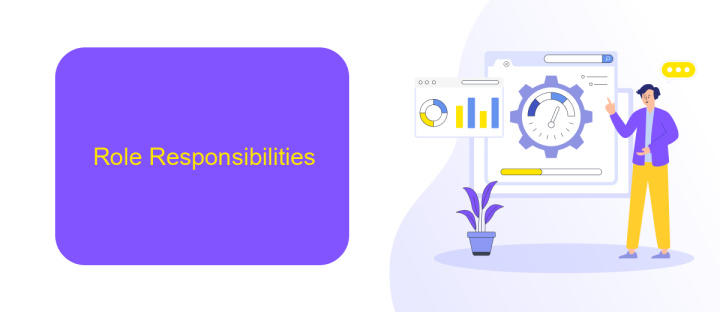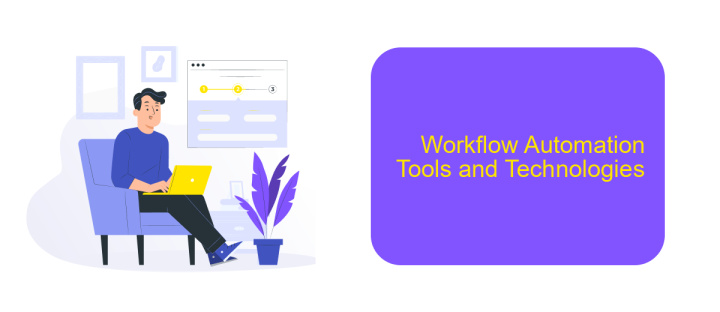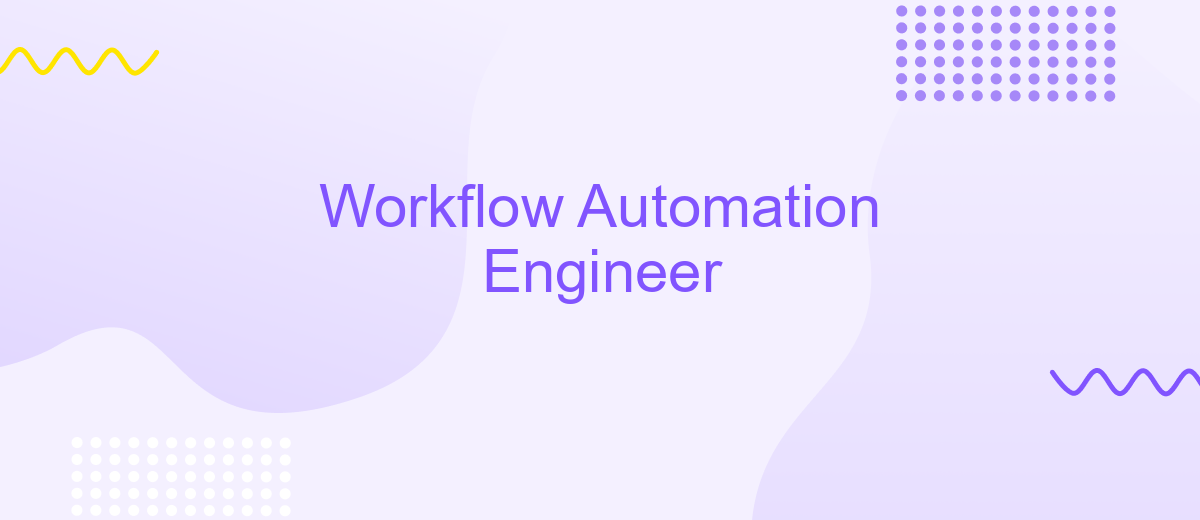Workflow Automation Engineer
A Workflow Automation Engineer plays a crucial role in modern businesses by streamlining processes and enhancing efficiency. They design, implement, and manage automated workflows to reduce manual tasks, minimize errors, and improve productivity. By leveraging cutting-edge technologies, these professionals enable organizations to operate more smoothly, allowing teams to focus on strategic initiatives and drive growth.
Introduction
In today's fast-paced digital world, the role of a Workflow Automation Engineer has become increasingly vital. These professionals are responsible for designing, implementing, and maintaining automated workflows that streamline business processes and enhance operational efficiency. By leveraging advanced technologies, Workflow Automation Engineers enable organizations to reduce manual tasks, minimize errors, and accelerate project timelines.
- Automating repetitive tasks to save time and resources
- Integrating various software applications for seamless data flow
- Monitoring and optimizing workflow performance
- Ensuring data accuracy and consistency across systems
One of the essential tools for Workflow Automation Engineers is ApiX-Drive, a service that facilitates the integration of different applications without the need for coding. ApiX-Drive allows engineers to connect various platforms effortlessly, ensuring smooth data transfer and synchronization. By utilizing such tools, Workflow Automation Engineers can focus on more strategic tasks, driving innovation and growth within their organizations.
Role Responsibilities

A Workflow Automation Engineer is responsible for designing, developing, and maintaining automated processes to streamline business operations. This role involves analyzing current workflows, identifying areas for improvement, and implementing solutions to enhance efficiency and reduce manual effort. The engineer collaborates with various departments to understand their needs and ensures that the automated workflows align with organizational goals. They also monitor the performance of automated systems, troubleshoot issues, and make necessary adjustments to maintain optimal functionality.
Additionally, the Workflow Automation Engineer integrates different software applications and services to create seamless workflows. They often use tools like ApiX-Drive to facilitate these integrations, allowing for smooth data transfer and communication between systems. This includes setting up API connections, configuring triggers and actions, and ensuring data integrity throughout the process. The engineer also stays updated with the latest automation technologies and best practices, continuously seeking opportunities to enhance the automation landscape within the organization.
Skills and Qualifications

As a Workflow Automation Engineer, you must possess a unique blend of technical and analytical skills. Your primary role will be to design, develop, and implement automated workflows that enhance efficiency and productivity across various business processes. A deep understanding of both software development and business operations is crucial for success in this role.
- Proficiency in programming languages such as Python, JavaScript, or Ruby.
- Experience with workflow automation tools like Zapier, UiPath, or ApiX-Drive.
- Strong understanding of APIs and integration techniques.
- Ability to analyze and optimize existing workflows for better performance.
- Excellent problem-solving skills and attention to detail.
- Familiarity with database management and SQL.
- Strong communication skills for collaborating with cross-functional teams.
- Experience with cloud platforms such as AWS, Azure, or Google Cloud.
In addition to technical expertise, a Workflow Automation Engineer should have a proactive mindset and be constantly on the lookout for new tools and technologies to improve automation processes. Knowledge of ApiX-Drive can be particularly advantageous, as it simplifies the integration of various applications, making it easier to streamline workflows. Continuous learning and adaptation are key to staying ahead in this rapidly evolving field.
Workflow Automation Tools and Technologies

Workflow automation engineers utilize a variety of tools and technologies to streamline business processes and increase efficiency. These tools enable the automation of repetitive tasks, allowing teams to focus on more strategic activities. The selection of appropriate tools is crucial for successful workflow automation implementation.
A key aspect of workflow automation is the integration of different systems and applications. Tools like ApiX-Drive facilitate seamless integration by connecting various software applications, ensuring that data flows smoothly between them. This reduces the need for manual data entry and minimizes errors.
- ApiX-Drive: A platform that connects various applications to automate data transfer and integration.
- Zapier: An automation tool that allows users to create workflows between different apps.
- Microsoft Power Automate: A service that helps create automated workflows between your favorite apps and services.
- UiPath: A leading RPA (Robotic Process Automation) tool for automating repetitive tasks.
By leveraging these tools, workflow automation engineers can design and implement efficient workflows that significantly enhance productivity. The choice of tools depends on the specific needs of the organization and the complexity of the workflows involved.
- Automate the work of an online store or landing
- Empower through integration
- Don't spend money on programmers and integrators
- Save time by automating routine tasks
Career Path and Salary Expectations
A career as a Workflow Automation Engineer typically begins with a strong foundation in computer science, information technology, or a related field. Entry-level positions often involve roles such as junior developers or IT support specialists, where individuals gain hands-on experience with automation tools and scripting languages. As they progress, professionals often move into more specialized roles, focusing on designing and implementing automated workflows to enhance business processes. Continuous learning and certifications in automation tools, such as ApiX-Drive, can significantly boost career advancement, allowing engineers to take on senior or lead positions within their organizations.
Salary expectations for Workflow Automation Engineers vary based on experience, location, and the complexity of the projects they handle. Entry-level engineers can expect to earn a competitive starting salary, which increases with experience and expertise. Mid-level professionals typically see a substantial salary boost as they take on more complex tasks and responsibilities. Senior Workflow Automation Engineers, especially those with specialized skills in tools like ApiX-Drive, can command high salaries, reflecting their critical role in optimizing and streamlining business operations.
FAQ
What is a Workflow Automation Engineer?
What skills are essential for a Workflow Automation Engineer?
How do Workflow Automation Engineers choose the right tools for automation?
What are the benefits of implementing workflow automation?
How can a business start with workflow automation?
Apix-Drive will help optimize business processes, save you from a lot of routine tasks and unnecessary costs for automation, attracting additional specialists. Try setting up a free test connection with ApiX-Drive and see for yourself. Now you have to think about where to invest the freed time and money!


